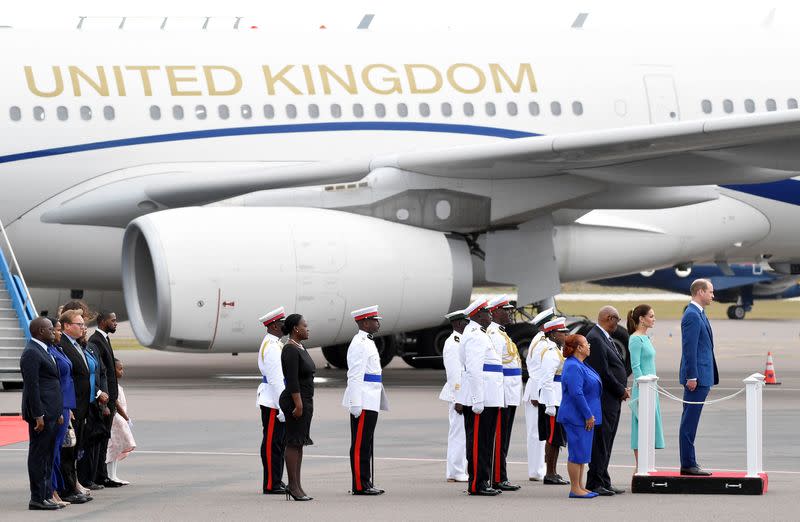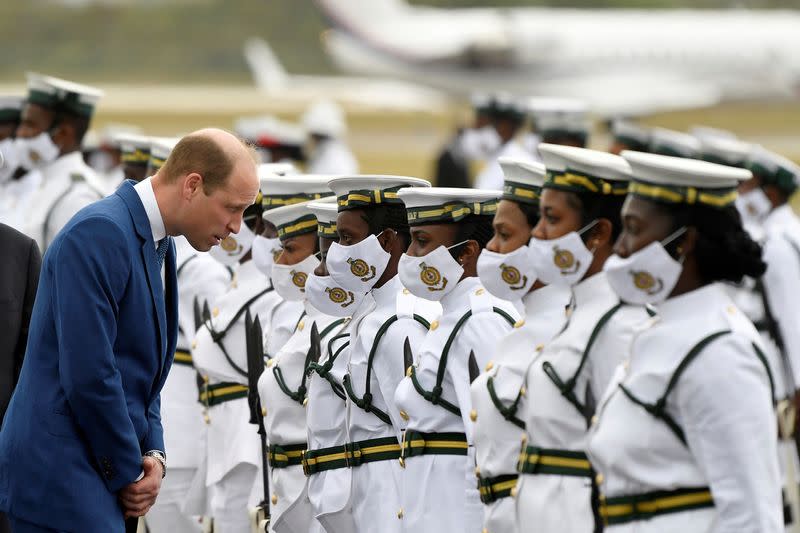British royals arrive in The Bahamas amid colonial reckoning
By Jasper Ward and Brian Ellsworth
NASSAU (Reuters) - Britain's Prince William and his wife Kate arrived in The Bahamas on Thursday for the third leg of a Caribbean tour that has been marked by protests over the British Empire's legacy and signs of waning influence of the monarchical system.
The Duke and Duchess of Cambridge faced a protest by Belize villagers and a rally in Jamaica for slavery reparations as well as unusually direct comments by Jamaica's prime minister about the country wanting to be "independent."
Their tour comes after Barbados removed the queen as head of state last year, a move other Commonwealth countries may follow and one that Jamaica has begun to study - potentially fueling a decline of British cultural influence in its former colonies.
William and Kate arrived at the Lynden Pindling International Airport and were greeted by Deputy Prime Minister Chester Cooper and Attorney General Ryan Pinder.
During the visit, they are scheduled to attend an assembly at a primary school, compete in a sailing regatta and participate in a cultural event featuring typical Bahamian food and music.
A protest is planned for Friday by Rastafarian groups to demand reparation payments by Great Britain and an apology for slavery.
The Bahamas National Reparations Committee, an independent panel created by the government to study the issue, made similar calls in a letter.
"They and their family of Royals and their Government must acknowledge that their diverse economy was built on the backs of our ancestors," read a letter published on Tuesday. "They must pay."
A separate demonstration will ask William and Kate to help bring attention to problems facing Bahamian women, including a legal provision that bars the prosecution of a person for raping their spouse, which is sometimes described as "marital rape."
Queen Elizabeth continues to be the official head of state for some former British colonies including Canada, Australia, Belize, The Bahamas and Jamaica, which are known as “realms” of the queen, although she serves as a symbolic figurehead and not political decision-maker.
A separate organization known as the Commonwealth of Nations is a group of 54 countries, almost all of which are former colonies of the United Kingdom, which is primarily focused on promoting democracy and development.
(Reporting by Jasper Ward in Nassau; Writing by Brian Ellsworthin Miami; Editing by Mark Porter)




